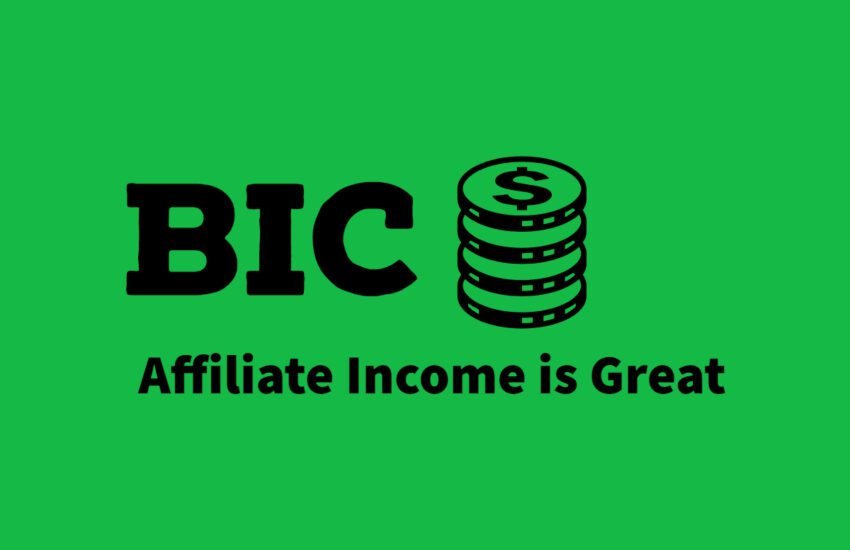The Death of SEO: A Bleak Reality for Small Publishers
Is SEO dead?
In the ever-evolving landscape of the internet, one thing is becoming increasingly clear: SEO, once hailed as the beacon of hope for small publishers, is now on life support, if not dead already. Over the past decade and a half, we’ve witnessed a dramatic shift in how content is discovered and consumed online, with the monopolistic grip of Google tightening its hold on both search and advertising. What was once a thriving ecosystem of diverse voices and independent publications has been systematically dismantled, leaving only a handful of elite players standing.
Trip Down Memory Lane
Let’s take a trip down memory lane to understand how we arrived at this grim juncture. Fifteen years ago, building a brand and attracting traffic through word of mouth and organic search was the name of the game. However, the advent of featured snippets swiftly dealt a fatal blow to small publishers, decimating their organic traffic by a staggering 90%. As if that weren’t enough, the rise of social media platforms promised new avenues for reaching audiences, only to betray those promises by throttling organic reach to near-zero levels.
Paid Traffic
Desperate for alternatives, publishers turned to paid traffic arbitrage, hoping to recoup their losses and sustain their businesses. For a time, it seemed like a viable solution, with many reaping substantial revenues. But alas, Google’s iron fist once again descended, mercilessly crushing earnings on AdSense and rendering countless websites financially unviable overnight.
Building an Email List
But what about building an email list, you might ask? Surely, that would provide a direct line of communication to engaged audiences. Think again. Major email service providers have consigned promotional emails to the dreaded “promotions” tab, relegating them to obscurity and rendering email marketing efforts all but futile.
Plight of Small Publishers
The plight of small publishers is further underscored by the demise of once-thriving websites, such as [Cracked.com](https://cracked.com), which now struggle to attract a fraction of their former audience. The culprit? A monopolistic stranglehold on internet traffic by tech giants like Google, who have meticulously archived and repurposed vast swaths of online content for their own gain, leaving content creators in the dust.
Advertisers reign supreme
So, what does the future hold for the internet? A dystopian landscape where advertisers reign supreme, and state-controlled platforms dictate the flow of information, all while peddling inferior products sourced from low-cost labor markets. Reddit’s ascent to the top of search engine results is not a coincidence but a harbinger of things to come—a platform rife with manipulated narratives and controlled agendas.
Monopolistic Corporations
The analogy to real-world capitalism is chillingly apt. Just as monopolistic corporations crush competition and consolidate power, so too have tech giants stifled innovation and diversity in the digital realm. The dream of a decentralized internet, where voices from all corners of the globe could be heard, lies shattered at our feet.
Glimmer of Hope
But amidst the rubble, a glimmer of hope remains for those daring enough to venture into uncharted territory: entrepreneurship. For small publishers clinging to survival, the only recourse may be to pivot towards product creation and sales—a daunting yet necessary evolution in the face of insurmountable odds.
Conclusion
The death knell for SEO has sounded, marking the end of an era for small publishers. As we bear witness to the monopolization of the internet by a select few, we must confront the harsh reality that the promise of a free and open digital frontier has been irrevocably shattered. Only time will tell if we can reclaim what has been lost or if we are doomed to languish in the shadows of tech oligarchs for generations to come.
Frequently Asked Questions
1. Is SEO really dead, or is it just evolving?
While it’s true that SEO as we once knew it is undergoing significant changes, declaring it dead would be an oversimplification. Instead, it’s more accurate to say that SEO is evolving in response to shifting algorithms, user behaviors, and the monopolistic control exerted by tech giants like Google. Traditional SEO tactics, such as keyword stuffing and manipulative link-building strategies, are no longer effective and can even lead to penalties. However, SEO still plays a crucial role in helping websites rank higher in search engine results by focusing on user experience, quality content, and technical optimization.
2. What role do search engine algorithms play in the decline of SEO?
Search engine algorithms, particularly those of Google, have become increasingly sophisticated in their ability to prioritize high-quality content and user experience. This has led to the demise of black hat SEO tactics that once allowed websites to artificially inflate their rankings. Instead, algorithms now reward websites that provide valuable, relevant content and adhere to best practices in terms of technical optimization and user engagement.
3. How has the rise of social media impacted SEO?
The rise of social media has had a profound impact on SEO, particularly in terms of organic reach and referral traffic. While social media platforms initially promised new avenues for reaching audiences, their algorithms have become increasingly restrictive, throttling organic reach in favor of paid advertising. This has forced many publishers to reevaluate their reliance on social media as a primary traffic source and to explore alternative strategies for driving website traffic.
4. What role do tech giants like Google play in the decline of SEO for small publishers?
Tech giants like Google wield immense power over the digital landscape, controlling both search engine algorithms and advertising platforms. This monopolistic control has made it increasingly difficult for small publishers to compete on a level playing field, as algorithm updates and policy changes can have devastating consequences for organic traffic and ad revenue. Additionally, Google’s dominance in online advertising further exacerbates the challenges faced by small publishers, who must contend with shrinking profit margins and increased competition for ad placements.
5. How have changes in email marketing affected SEO?
Changes in email marketing, such as the relegation of promotional emails to separate tabs in major email service providers, have diminished the effectiveness of email as a traffic-driving tool. Publishers who once relied on email lists to drive website traffic now face decreased open rates and engagement, making it harder to offset losses in organic search traffic. As a result, many publishers are exploring alternative channels for reaching audiences, such as SMS marketing and push notifications.
6. What role does content quality play in SEO today?
Content quality is paramount in today’s SEO landscape, as search engine algorithms prioritize relevance, depth, and user engagement. Gone are the days of keyword-stuffed, low-quality content that provided little value to readers. Instead, search engines reward websites that publish well-researched, authoritative content that addresses user intent and provides unique insights or solutions. Focusing on content quality not only improves search engine rankings but also enhances user satisfaction and encourages repeat visits.
7. How have algorithm updates impacted SEO strategies?
Algorithm updates, such as Google’s Panda and Penguin updates, have had a significant impact on SEO strategies by targeting spammy or manipulative tactics and rewarding websites that prioritize user experience and quality content. Publishers must stay abreast of these updates and adapt their SEO strategies accordingly, focusing on best practices such as mobile optimization, site speed, and schema markup. Failure to do so can result in penalties and a loss of organic visibility.
8. What role does user experience (UX) play in SEO performance?
User experience (UX) is increasingly recognized as a critical factor in SEO performance, as search engines prioritize websites that provide a seamless, intuitive browsing experience. Factors such as site speed, mobile responsiveness, navigation structure, and content formatting all contribute to overall UX and can impact search engine rankings. By prioritizing UX improvements, publishers can enhance their SEO performance and provide a more satisfying experience for visitors.
9. How can small publishers compete in an environment dominated by tech giants?
While the challenges facing small publishers may seem daunting, there are strategies they can employ to compete in an environment dominated by tech giants. These include niche specialization, cultivating a loyal audience through community engagement, diversifying revenue streams beyond advertising, and leveraging emerging technologies such as voice search and AI-driven content personalization. By focusing on their unique strengths and delivering value to their target audience, small publishers can carve out a niche for themselves in the digital landscape.
10. What does the future hold for SEO in light of these challenges?
The future of SEO remains uncertain, as ongoing changes in search engine algorithms and user behavior continue to reshape the digital landscape. However, one thing is clear: SEO will continue to evolve in response to these challenges, requiring publishers to adapt their strategies accordingly. Embracing a holistic approach to SEO that prioritizes user experience, quality content, and technical optimization will be crucial for maintaining visibility in search engine results and driving organic traffic. Additionally, diversifying traffic sources and revenue streams will help mitigate the impact of algorithm updates and policy changes, ensuring long-term sustainability for publishers in an increasingly competitive environment.

